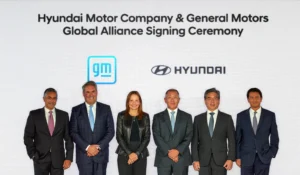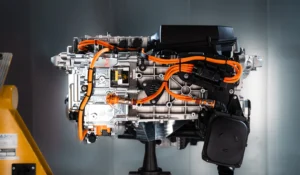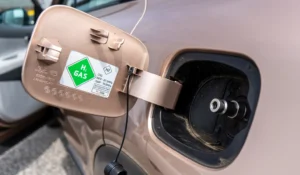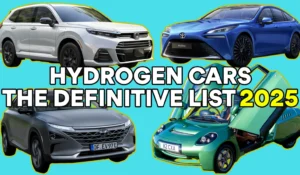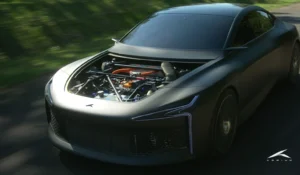UK government to bring back the 2030 ban on new petrol and diesel cars
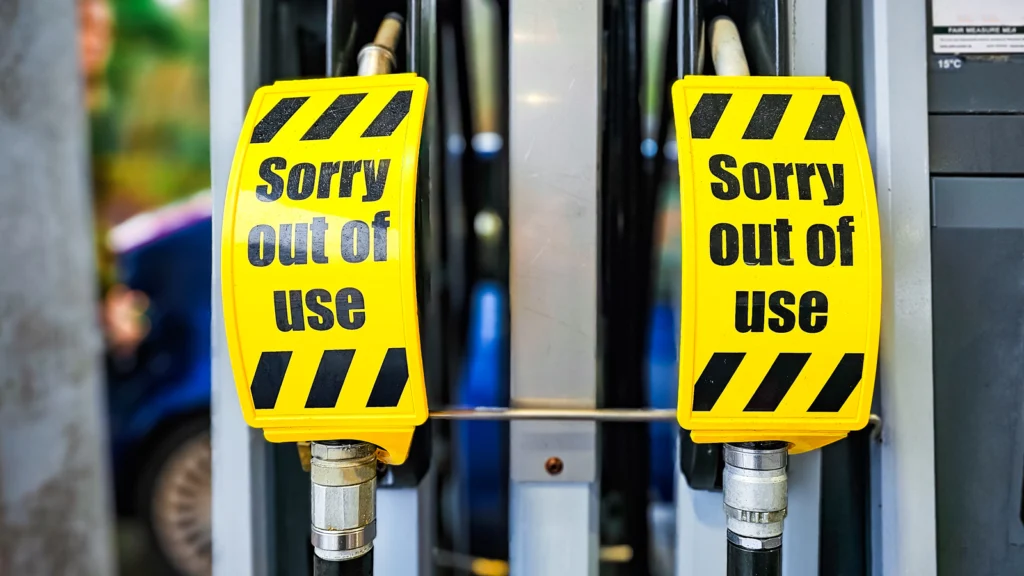
Ministers have confirmed that the new Labour government will reinstate the 2030 ban on petrol and diesel cars.
Under the previous government, the ban on petrol and diesel cars was moved back to 2035. The government plans to reverse this delay, as set out in Labour’s manifesto and automotive sector plan.
The government has also announced that the sale of new hybrid cars will be allowed until 2035.
What does this mean for car manufacturers?
Currently, manufacturers have been given sales targets for electric vehicles (both cars and vans).
For example, this year major vehicle manufacturers need 22% of total car sales in the UK to be zero-emission cars. 11% of van sales have to be zero-emission vans.
Each year, the target increases incrementally until it reaches 100% in 2035.
Manufacturers who don’t comply are fined at a rate of £15,000 per non-compliant car and £18,000 per non-compliant van.
Of course, the deadline change means these percentages need to be adjusted upwards, to meet 100% zero-emission vehicles by 2030.
Manufacturers are split over the 2030 deadline. Whilst many are in support of reducing the number of internal combustion engine (ICE) vehicles that they produce, others say the deadline is too soon.
In fact, the deadline was pushed back to 2035 by Rishi Sunak partly due to pressure from manufacturers such as Nissan, Toyota and Jaguar Land Rover.
Ford, Tesla and Volkswagen, however, have expressed their support for the 2030 deadline. Ford and Volkswagen have made ambitious electrification plans for their models, whilst Tesla exclusively manufactures electric vehicles.
Labour believes that this change will give “certainty to manufacturers”. This is confirmed by Matt Galvin, UK managing director of Polestar, who says that what “vehicle manufacturers need is certainty to support product lifecycle planning”.
Many manufacturers have planned for the 2030 date for years in the background. The earlier deadline being reinstated will likely be welcomed by them.
What does this mean for you?
The reality is that zero-emission vehicles are outside of a lot of people’s budgets.
In April this year, only one in six electric vehicle purchases was made by a general member of the public. The majority are bought by fleets and businesses, incentivised by tax benefits.
2024 has, however, seen the first wave of cheaper electric vehicles enter the market, such as Dacia’s Spring (starting from £14,995) and Citroen’s e-C3 (starting from £21,990).
Used electric vehicles are also becoming more affordable but they come with their issues.
There is the potential for the deterioration of battery health, leading to lower battery capacity. Replacing the battery is not the answer, given batteries are extremely expensive to replace.
According to Autotrader, electric vehicles also depreciate faster than petrol and diesel models, especially in the first 12 months.
Jack Cousens, Head of Roads Policy at the AA, has encouraged both manufacturers and the government to introduce incentives to encourage people to buy a zero-emission vehicle.
Not only has the cost of EVs been a barrier for consumers, but so have higher energy costs. More needs to be done on both fronts if the government expects those on lower incomes to make the switch.
There also needs to be an improvement in the provision of charge points. As of July 1, 64,632 EV charging devices were available for public use across the UK.
This is far short of the UK’s target of 300,000 charge points by 2030.
If the government is serious about hitting the 2030 target, we can expect to see more incentives to buy zero-emission vehicles, as well as a faster rollout of charge points.
Motorists should also be aware that manufacturers are restricting the number of petrol and hybrid cars that they sell, in order to avoid fines.
Martin Sander, general manager of Ford’s electric car business, said that this helps them to artificially boost the percentage of zero-emission vehicles sold.
This means that if you’re planning on buying a new petrol car today, you could be waiting until next February to drive it home.
Are we likely to meet these targets?
The short answer is: no.
The Society of Motor Manufacturers and Traders (SMMT) is predicting that just 18.5% of new car sales this year will be zero-emission cars, short of the 22% target.
The figures are increasing, however. 22.6% of cars sold in August were zero-emission, up from 17.2% for the year to date.
What does this mean for hydrogen cars?
The good news is that the 2030 deadline could have a positive impact on the hydrogen car industry.
Battery electric vehicle (BEV) sales are slowing, and manufacturers like BMW, General Motors, Hyundai and many more are hedging their bets by bringing hydrogen cars to market in the next couple of years.
Manufacturers are trying to dodge fines. The government is looking for other ways to reduce the number of internal combustion engine vehicles.
This means both manufacturers and the government are likely to look to hydrogen cars to broaden the offering of zero-emission vehicles.

